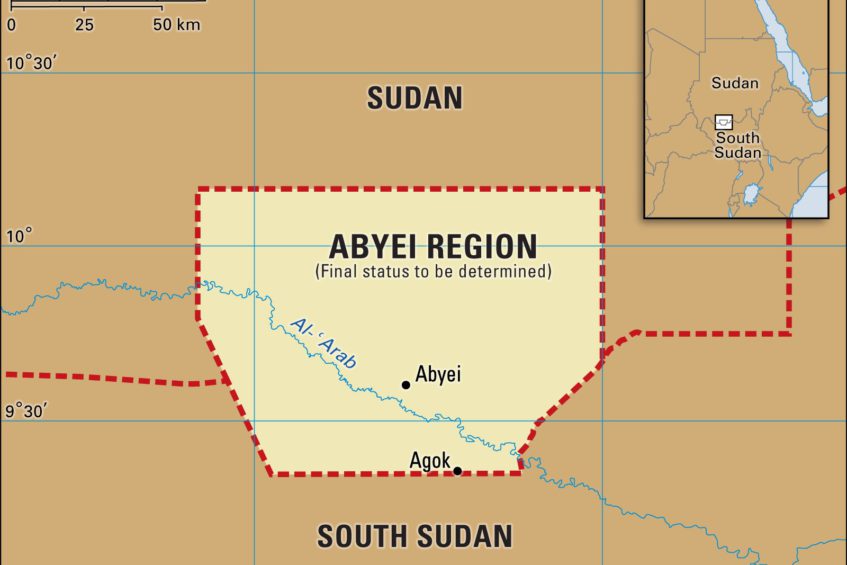
The border region of Abyei has been contested since South Sudan gained independence in 2011.
The National Committee for the final status of Abyei held its first meeting with the Sudanese delegation in Juba on Friday.
The committee is headed up by the presidential advisor for security affairs – Tut Gatluak.
Based on the 2005 Comprehensive Peace Agreement or CPA, the committee is tasked with negotiating with the government of Sudan an amicable solution on the status of the Abyei.
In his first meeting with the Sudanese delegate in Juba, the team discussed the historical documents related to the Abyei area.
The meeting was attended by deputy head of the committee, Deng Alor Kuol.
In a press statement issued yesterday, the two delegates agreed on peaceful solutions to the final status of Abyei area.
They say this is in line with the improvement in the strategic relations between Sudan and South Sudan.
They stressed that solving the Abyei dispute will not be difficult for the two countries, as long as they are able to achieve peace and stability in the two countries previously.
The committees also agreed to meet soon either in Juba or Khartoum in order to discuss the final status of Abyei with the Sudanese counterpart committee which was recently formed by the head of Sudanese Sovereign Council.
The oil-rich border region of Abyei has been contested since South Sudan gained independence in 2011.
The Abyei Area was accorded a “special administrative status” by the 2004 Protocol on the Resolution of the Abyei Conflict, known as, the Abyei Protocol.
Under the terms of the Protocol, the Abyei Area was declared part of the states of South Kordofan and Northern Bahr el Ghazal and issues related to it to be determined by the Presidency made up of President Salva Kiir and former Sudanese President Omar al Bashir.
After years of contention between leaders in South Sudan and Sudan on who is eligible to vote in the referendum, the nine Ngok Dinka chiefdoms took the matter into their own hands by organizing their own popular vote.
They cited the Abyei Protocol in the CPA, and the ruling by the International Permanent Court of Arbitration, which proclaimed that only the Ngok Dinka tribe and permanent residents may vote.
The Sudanese government wanted the nomadic Arab Misseriya tribe, whose cattle access pasture lands in Abyei annually, to be accorded full voting rights.
Several inter-communal clashes between the armed Misseriya pastoralist tribe of Sudan and the Dinka Ngok of South Sudan have led to many civilian deaths in the last decade.
Support Eye Radio, the first independent radio broadcaster of news, information & entertainment in South Sudan.
Make a monthly or a one off contribution.
Copyright 2024. All rights reserved. Eye Radio is a product of Eye Media Limited.